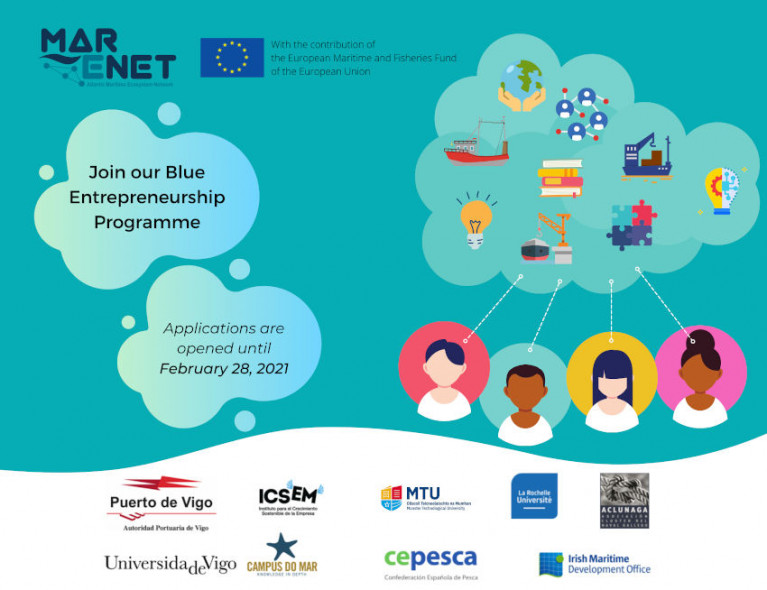Displaying items by tag: Entrepreneurship
Blue Entrepreneurship Programme Aims to Foster Innovative Marine-Related Business Ideas
A new Blue Entrepreneurship Programme aims to foster innovative business ideas in the Blue Economy sector across the European Union’s Atlantic member states, including Ireland, France and Spain.
Thirty applicants with business ideas related to the marine environment will be selected by the MarENet consortium to be part of this online training and mentoring programme, which will run from March to October this year.
The programme aims to strengthen the knowledge and skills of all involved, as well as provide them with the necessary tools to pursue their ideas and turn them into projects with real potential.
Fifteen project proposals will also have the opportunity to take park in a ‘Blue Hackathon’ event in Cork this June, subject to pandemic restrictions.
This will give participants the opportunity to interact with industry, academic and research institutions, confederations and associations as well as other marine stakeholders.
At the final stage, the three winners at the Blue Hackathon will receive close assistance to identify potential funding opportunities and will be guided to create synergies with the industry to put their ideas into practice.
Speaking about the programme, Yvonne O’Byrne from Munster Technological University said: “It is a fantastic opportunity for budding entrepreneurs in the maritime sector to receive guidance and training to assist them in pursuing their business ideas.
“I think during the last 12 months, lots of us have taken some time to reflect on our careers and I’m sure there are many people out there working or interested in the maritime industry with a great idea for a new business but not sure what to do next. This programme, which is completely free of charge, is a great first step.”
If you have a business idea that responds to some of the challenges of the marine environment or maritime industry, apply today by filling out the online application form. Registration closes on Sunday 28 February 28.
To learn more about what the MarENet entrepreneurship programme includes and how you can get involved, download the brochure HERE.
The MarENet consortium, led by the University of Vigo - Campus do Mar, comprises Munster Technological University (MUT) and the Irish Maritime Development Office; Vigo Port Authority, Naval Cluster Association of Galicia (ACLUNAGA), Spanish Fisheries Confederation (CEPESCA) and Institute for Sustainable Business Growth (ICSEM) in Spain; and the University of La Rochelle in France. The MarENet project is co-financed by the European Commission’s European Maritime Fisheries Fund (EMFF).






























































